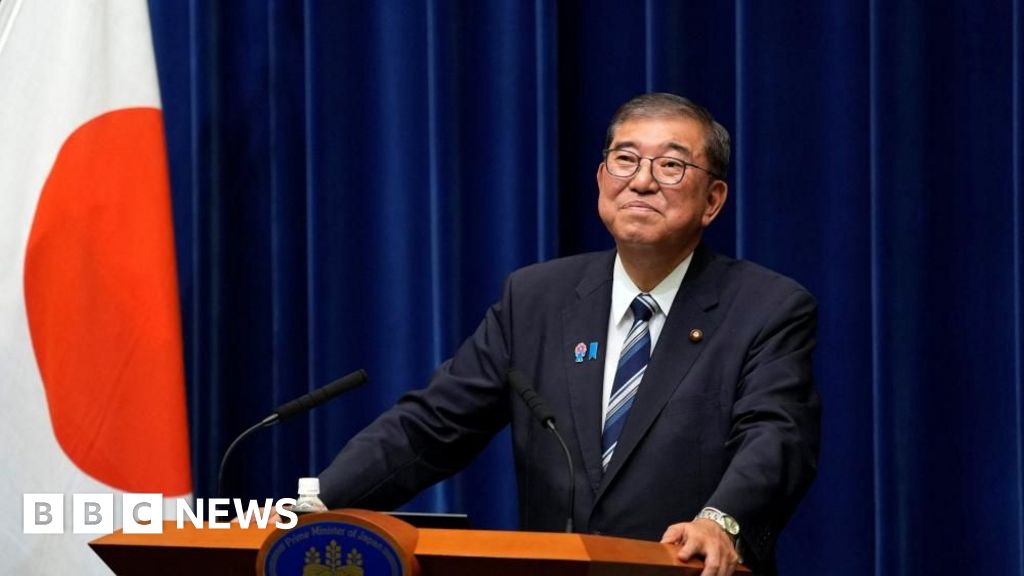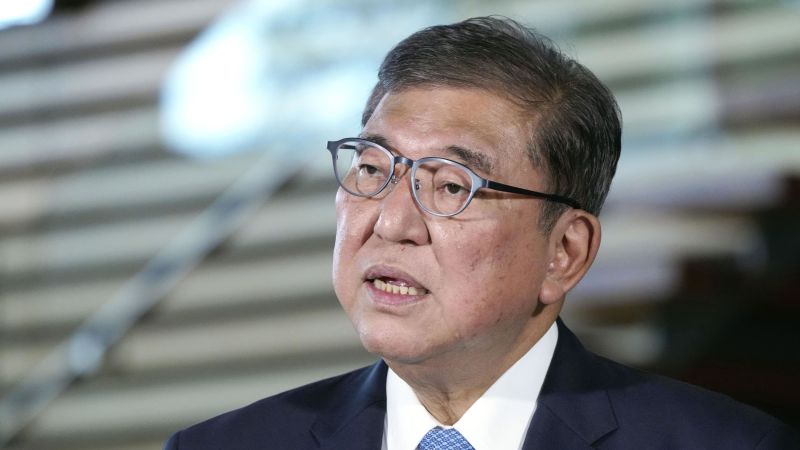Japan's Prime Minister Resigns Amid Economic and Foreign Policy Challenges

Introduction
After struggling to inspire confidence as Japan faced economic headwinds, Prime Minister Shigeru Ishiba has announced his resignation. This news comes as a surprise to many, as Ishiba had only been in office for a little over a year.
Challenges and Criticism
Ishiba's tenure was marked by challenges, both domestically and internationally. His handling of the economy, which has been in a state of stagnation for years, has been heavily criticized. In addition, Ishiba faced backlash for his foreign policy decisions, particularly his handling of the ongoing trade disputes with neighboring countries.
Future of Japan's Leadership
With Ishiba's resignation, the future of Japan's leadership is uncertain. It is expected that the ruling party will select a new prime minister to take over, but it is unclear who that may be. This change in leadership may bring a shift in policies and strategies, which could have a significant impact on the country's economy and international relations.
Conclusion
Shigeru Ishiba's resignation marks the end of a turbulent and short-lived term as Japan's prime minister. While he faced many challenges and criticisms during his time in office, his departure raises questions about the future direction of the country. As Japan looks for new leadership, it remains to be seen how the new prime minister
About the People Mentioned
Shigeru Ishiba
Shigeru Ishiba is a Japanese politician born on February 4, 1957, in Tokyo, Japan. He comes from a political family, being the son of the former Governor of Tottori Prefecture. Ishiba entered politics after working at Mitsui Bank, encouraged by former Prime Minister Kakuei Tanaka. He was first elected to the House of Representatives in 1986 at the age of 29, becoming the youngest member at the time[4][5]. Ishiba has held several prominent roles throughout his career. He served as Director-General of the Japan Defense Agency from 2002 to 2004, Minister of Defense from 2007 to 2008, and Minister of Agriculture, Forestry and Fisheries from 2008 to 2009[2][4]. He was also the Secretary-General of the Liberal Democratic Party (LDP) from 2012 to 2014[2]. Ishiba has been known for his moderate stance and has criticized his own party on several occasions, including supporting a motion of no-confidence against Prime Minister Kiichi Miyazawa in 1993[1][2]. In 2024, Ishiba became the President of the LDP and subsequently the Prime Minister of Japan, serving until 2025[1][2]. During his tenure, he focused on issues like rural revitalization and addressing Japan's declining population[3]. Ishiba is also known for his progressive views on social issues, such as supporting women's empowerment and same-sex marriage[3]. In September 2025, he announced his resignation as Prime Minister and LDP leader, following the party's loss of its majority in both houses of Japan's parliament[3].
About the Organizations Mentioned
Ruling Party
The term **"Ruling Party"** refers primarily to the political party or coalition that holds the majority of elected positions in a government’s legislative body or controls the executive branch, effectively governing the state. In democratic parliamentary systems, the ruling party is the one that commands the majority in parliament and forms the government. In presidential systems, it is often the party of the elected president or executive leader, though this party may not always have legislative majority control[1]. The concept also applies to one-party states where a single party, such as the Chinese Communist Party, monopolizes political power[1]. **What the ruling party does:** The ruling party administers government affairs, implements policy, and oversees legislation aligned with its platform goals. It connects the electorate to government by mobilizing voters, recruiting candidates, managing campaigns, and shaping public policy[4]. The party’s organizational structure includes national committees that coordinate fundraising, candidate support, and media strategies, especially during elections[2][3]. These organizations increasingly use multimedia platforms and digital tools to communicate and engage with voters. **History and evolution:** Political parties have evolved from loosely organized groups to sophisticated entities with national, state, and local structures. National parties hold conventions to nominate presidential candidates and establish party platforms outlining their policy positions[3]. Over time, parties became more candidate-centered, boosting their campaign support infrastructure and fundraising efforts[2]. **Key achievements and notable aspects:** Ruling parties have shaped legislative agendas and executive actions, influencing national and international policies. Their ability to unite elected officials, manage legislative priorities, and maintain voter support is crucial for political stability. Leaders within the ruling party, including majority leaders and party whips in legislatures, coordinate legislative strategy and party discipline[7]. The ruling party’s success also depends on its capacity to innovate politically, utilizing digital media and grassroots engagement to maintain relevance. **Current status:** In modern democracies, ruling parties face challenges such as polarized electorates and evolving communication technologies. They remai













